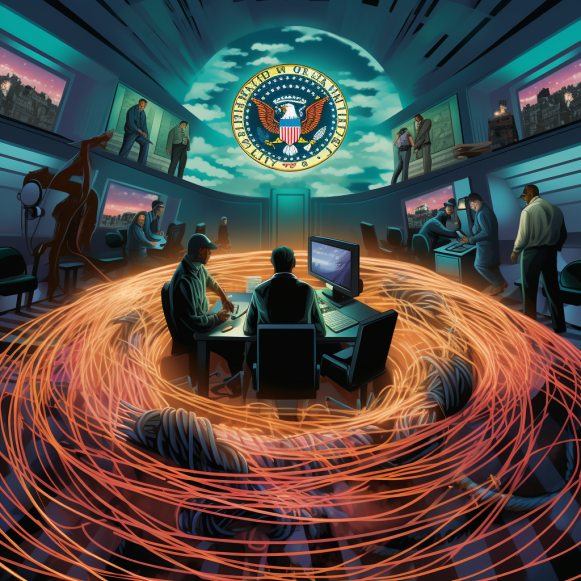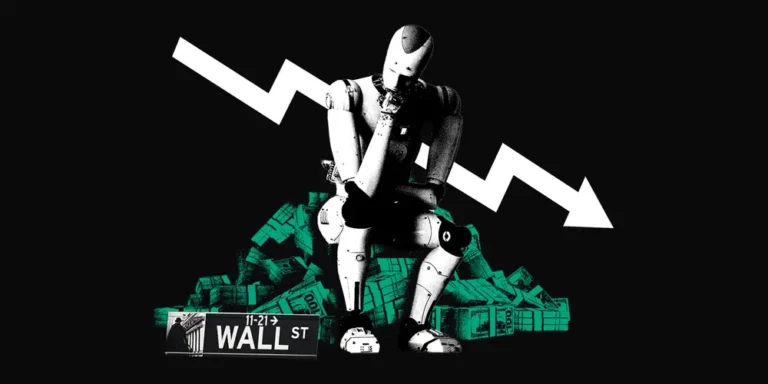FCC to reintroduce rules protecting net neutrality

The US government intends to reinstate broad regulations for high-speed internet providers such as AT&T, Comcast, and Verizon, reviving “net neutrality” rules for the broadband industry – and reviving an ongoing debate about the internet’s future.
According to multiple people familiar with the plan, the Federal Communications Commission’s proposed rules will classify internet service — both wired internet found in homes and businesses and mobile data on cellphones — as “essential telecommunications” similar to traditional telephone services. According to CNN, the rules would prohibit internet service providers (ISPs) from blocking or slowing access to websites and online content. Bloomberg broke the story first.
The proposal will be unveiled by agency chairwoman Jessica Rosenworcel in a speech at the National Press Club on Tuesday, according to the people, who also said the FCC will vote on Oct. 19 on whether to advance the draft rules by soliciting public feedback on them — a step that would precede the creation of any final rules.
In addition to the prohibitions on blocking and throttling internet traffic, the draft rules seek to prevent ISPs from selectively speeding up service to favored websites or those willing to pay extra fees, according to the people, a move intended to prevent the emergence of “fast lanes” on the internet that could give some websites a paid advantage over others.
The FCC’s proposal on Tuesday aims to restore Obama-era regulations that the telecom and cable industries fought for years in court and that the FCC rolled back during the Trump administration under Republican leadership. If the FCC’s latest effort is successful, it could pave the way for additional broadband-related rules dealing with national security, public safety, or consumer privacy — regulations that the FCC cannot design without relying on some of its most powerful legal tools, according to one of the people.
A redo of net neutrality
Rosenworcel is expected to say in her speech that net neutrality rules are more important than ever after millions of Americans discovered the critical importance of reliable internet access during the Covid-19 pandemic. Rosenworcel could also argue that a single, national standard for net neutrality would provide businesses with the certainty they need to accelerate efforts to blanket the country in fast, affordable broadband.
However, Rosenworcel’s push could spark a widespread revolt among internet service providers, who are among the most powerful and well-funded groups in Washington.
It could also lead to more of what has helped to popularize net neutrality over the last decade: Late-night segments by comedians such as John Oliver and Stephen Colbert; in-person protests, including at the FCC’s headquarters and the chair’s home; allegations of fake, AstroTurfed public comments and cyberattacks; and even threats of violence.
The latest net neutrality rulemaking reflects one of Rosenworcel’s most visible initiatives — and one of her first since the US Senate confirmed Anna Gomez as the agency’s fifth commissioner this month, breaking a years-long 2-2 partisan deadlock at the FCC that had prevented hot-button initiatives from moving forward.
The draft rules also demonstrate how a continued lack of federal legislation to establish a nationwide net neutrality standard has resulted in ISPs’ rules flip-flopping with each change of political administration, as well as a patchwork of state laws attempting to fill the gap.
If approved next month, the FCC draft would be open for public comment until around mid-December, followed by a period for public responses that would extend into January. In the months that follow, a final set of rules could be voted on.
For years, consumer advocacy groups have advocated for strict rules that would prevent ISPs from distorting the free flow of information on the internet through the use of arbitrary or commercially motivated traffic rules.
ISPs, on the other hand, have long argued that websites that consume a large portion of a network’s capacity, such as search engines or video streaming sites, should pay for the network demand generated by their users. Officials in the European Union are said to be considering just such a proposal.
Broadband policy’s third rail
In attempting to resurrect the agency rules, the FCC has crossed what has become the third rail of US broadband policy: Title II of the Communications Act of 1934, the law that gave the FCC its congressional mandate to regulate legacy telephone services.
Tuesday’s proposal would regulate ISPs under Title II, giving the FCC clearer authority to impose rules against website blocking, throttling, and paid prioritization. According to the people, the draft rules are very similar to the rules passed by the FCC in 2015. In the face of an industry lawsuit, a federal appeals court in Washington upheld the rules in 2016.
However, shortly after that decision, Donald Trump was elected President, prompting him to appoint Ajit Pai, then one of the FCC’s Republican commissioners, as its chair. Pai’s first act as agency chief was to propose rescinding the previous net neutrality rules. The FCC voted to repeal the rules in 2017, with Pai arguing that doing so would accelerate private investment in broadband networks and free the industry from onerous regulation. The repeal went into effect in 2018.
Since then, ISPs have refrained from the kind of blocking and preferential treatment that net neutrality advocates have warned about, but Rosenworcel’s proposal demonstrates how those fears have persisted.
Reestablishing battle lines
Net neutrality started as a bipartisan issue, with the George W. Bush administration issuing some of the first principles for an open internet, leading to FCC attempts at concrete regulation in 2010 and again in 2015.
The telecom and cable industries have long argued that using Title II to regulate broadband would be a form of government overreach, that telephone-style regulations are unsuitable for digital technologies, and that it would discourage private investment in broadband networks, limiting Americans’ ability to connect to the internet.
Part of what made the FCC’s 2015 rules so contentious was that classifying ISPs as Title II providers meant the agency could theoretically attempt to set internet service prices directly, a prospect that ISPs widely feared but that the FCC promised not to do in 2015.
According to the people, Tuesday’s proposal makes the same commitment, foregoing 26 Title II provisions and more than 700 other agency rules that could be perceived as intrusive. According to the people, the draft rules also prohibit the FCC from forcing ISPs to share their network infrastructure with other competing internet providers, a concept known as network unbundling.
In addition to fierce industry opposition in the FCC’s comment process, the proposal may result in legal challenges against the FCC. While the 2015 net neutrality rules were upheld on appeal, suggesting that the current FCC is on solid ground to issue the current proposed rules, the draft comes as the Supreme Court moves to reconsider federal agencies’ power by scrutinizing courts’ decades-long deference to their expert authority.






